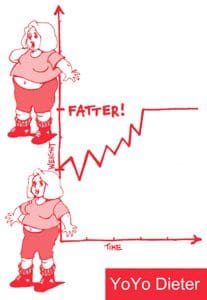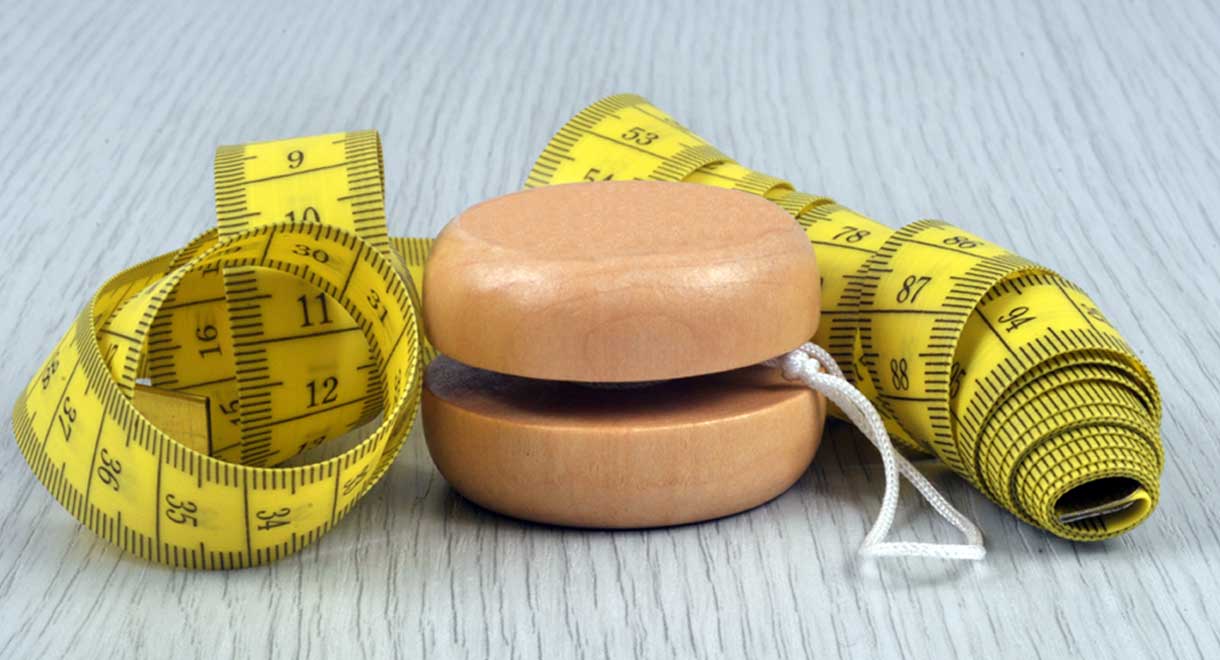Are You A “Yo-Yo” Dieter?
A “yo-yo dieter” is someone who has repetitively lost a lot of weight on various diets and then put it all (and often extra weight) back on.
Yo-yo dieting, also known as weight cycling, is the behaviour of losing weight and then regaining it and then dieting again and repeating the behaviour. Typically, the person’s weight goes up and down like a yo-yo. The weight gain causes the “up” phase of yo-yo dieting and often causes another round of dieting and temporary weight loss. This behaviour is common, especially in women.
When most people use a short-term diet to lose weight, they will regain 30 to 60% of that lost weight within one year because after dieting they do not follow a correct maintenance eating plan which needs to be low carbohydrate. Excess carbohydrates lead the body to store fat because they elevate insulin levels. Even worse over 30% of dieters end up heavier than before they started dieting.
Unfortunately, during many types of weight-loss diets, the body loses muscle mass as well as body fat. Fat is regained more easily than muscle after weight loss, and this often leads to more loss of muscle with repeated cycles of yo-yo dieting over time. Reduced physical strength can result from muscle loss during dieting but this can be reduced with exercise and strength training. Exercise produces hormones which signal the muscles to grow, even when losing weight. During weight loss, the body needs more protein and eating regular good quality protein reduces muscle loss. Studies have shown that when adults took protein supplements as they were losing weight, they lost less muscle mass.
Yo-yo dieters usually have a dysfunctional emotional relationship with food and need to find strategies away from food to help improve their mood and energy.
Try to be mindful (fully conscious) of your behaviour by asking yourself questions like:

- Am I really hungry?
- Do I really need food now?
- Can I do something physical instead of eating?
- Can I phone a friend instead of eating?
- Can I do something for myself that I enjoy?
- Can I do something to improve my self-esteem?
- Can I drink a whole glass of water instead of eating?
Often when you feel hungry, it is really water that your body is craving. Having a glass of water, a vegetable juice or a cup of tea is a great way to stave off hunger between meals.
Food and especially carbohydrates can be physically and emotionally addictive and many overweight people struggle with this addiction. Sugar can be just as addictive as alcohol, nicotine and drugs and is the hardest addiction to overcome because food is everywhere – it is in your face all the time!
If you have a dysfunctional relationship with food, we recommend you join overeaters anonymous where you will discover that this problem is extremely common. Check them out online.


Leave A Comment